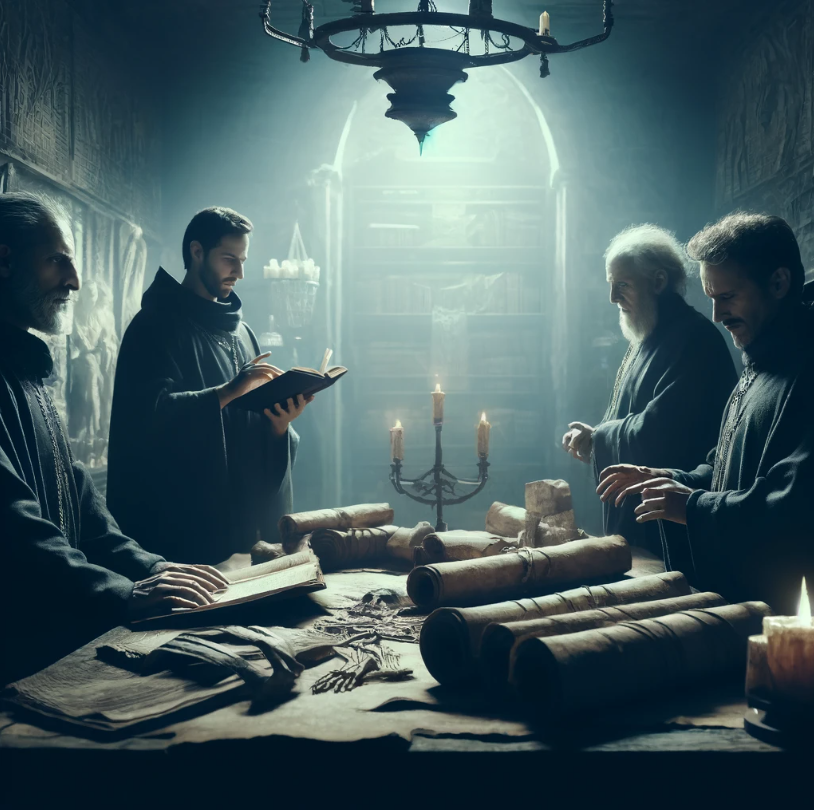
Necromancy is discussed in the Bible in Deuteronomy 18:10-12, where it is condemned alongside other practices. It’s mentioned as part of a list of practices that are detestable to the Lord.
Deuteronomy 18:10-12
There shall not be found among you any one that maketh his son or his daughter to pass through the fire, or that useth divination, or an observer of times, or an enchanter, or a witch. Or a charmer, or a consulter with familiar spirits, or a wizard, or a necromancer. For all that do these things are an abomination unto the Lord: and because of these abominations the Lord thy God doth drive them out from before thee.
Deuteronomy 18:10-12
How is necromancy interpreted in the Bible?
In the heart of the Bible, in the book of Deuteronomy, God speaks clearly to His people, guiding them on the path of life He desires for them. In chapters 18, verses 10 to 12, a strong message is delivered, one that resonates deeply with believers who hold God’s word close to their hearts. Here, God is like a loving parent, instructing His children to steer clear of practices that are dark and distant from His light—practices like necromancy, which is trying to communicate with the dead.
God’s word is clear: He doesn’t want His beloved children to be involved in any form of dark arts, including necromancy. This isn’t just a simple rule; it’s about protecting us from paths that lead away from His light and love. Necromancy is listed among other forbidden practices, such as sorcery and witchcraft, which are seen as detours from the life God intends for us.
For believers, this teaching is not just an ancient rule but a living guidance. It’s about staying connected to the source of life, God Himself, rather than seeking answers from the shadows. The Bible tells us that these practices are an «abomination» to the Lord, which is a strong word that expresses how deeply God disapproves of them. It’s not because God wants to control every aspect of our lives, but because He knows what’s truly good for us.
When God tells His people to avoid necromancy, it’s out of a deep love and a desire to protect them. It’s like when a parent tells a child not to touch a hot stove. The parent isn’t being harsh; they’re keeping the child safe. In the same way, God’s guidance in Deuteronomy is a protective boundary, keeping His children safe from spiritual harm.
This teaching also reminds believers of the importance of where they seek guidance and wisdom. Instead of turning to the shadows, God wants His children to turn to Him, to the Bible, and to prayer. He is the source of all truth, wisdom, and understanding. By staying close to God and following His ways, believers find a path that is filled with light, hope, and true guidance.
In the grand tapestry of the Bible’s teachings, the message in Deuteronomy about avoiding necromancy is a thread that weaves through the fabric of faith. It’s a reminder that in every choice, believers are called to choose the path of light, to choose life, and to choose the ways that lead closer to God. This teaching, like many others in the Bible, is a beacon guiding believers on their journey, encouraging them to walk in the ways that honor God and bring them closer to His eternal love.
